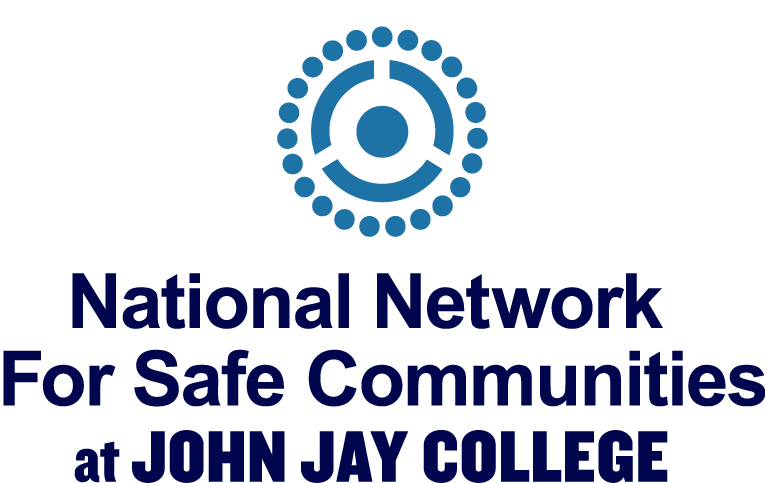In the midst of a public health crisis, when communities are asked to stay at home to stay safe, home is not a safe place for many intimate partner violence (IPV) victims. Law enforcement agencies and advocates across the country are facing the increasing needs of communities to address intimate partner violence. Jurisdictions across the country have already begun to observe spikes in IPV. The National Network for Safe Communities has been closely following these conversations and recognizes the frustration and fear that police departments, courts, prosecutors, and advocates are experiencing on behalf of survivors.
The National Network for Safe Communities and experts from around the country are working to share what they’re seeing and how they’re addressing intimate partner violence in the context of COVID-19.
On April 13, 2020, the National Network hosted a virtual panel on maintaining a robust response to IPV during the era of COVID-19 and ways to continue to keep survivors safe. The goal was to bring together experts in the field and discuss ways to protect the most vulnerable victims, identify enforcement and sanctions for those who cause harm, and innovate system responses both during this current social distancing period and for any other periods in the future.
Hillar Moore has been serving as District Attorney of East Baton Rouge since 2009. Hillar is the former President of the Louisiana District Attorney’s Association and he has served on the Board of Directors for the National District Attorneys Association. He most recently has been appointed to the President’s Commission on Law Enforcement and the Administration on Justice and currently serves as Co-Chair of Violent Crime Committees.
Ruth Glenn is the President and CEO of the National Coalition Against Domestic Violence. She has worked and volunteered in the domestic violence field for over 25 years. Ruth is also a survivor of domestic violence. She has served on many domestic violence program and funding boards, provided hundreds of presentations on domestic violence victimization and survival, and has testified before the Colorado State legislature and the U.S. Congress.
Michael Green is the Executive Deputy Commissioner of the New York State Division of Criminal Justice Services. He leads the agency whose mission is to enhance public safety by providing resources and services that inform decision-making and improve the quality of the criminal justice system. Prior to joining DCJS, he served for 25 years in the Monroe County District Attorney’s Office, including eight years as the elected District Attorney.
Aileen Robinson is the Domestic Violence Operations Coordinator at the Chicago Police Department. Aileen has developed many best practices programs and has been recognized for her work locally, nationally, and internationally. She has been working at the Chicago Police Department for the past 21 years. In addition to her work at the Department, Aileen is an adjunct professor at National Louis University and is a consultant to a local subsidized housing community where she addresses incidents of IPV.
Rachel Teicher is the Director of the Intimate Partner Violence Intervention at the National Network for Safe Communities. Rachel has worked in the domestic violence and sexual assault fields for nearly 20 years. Prior to working at the NNSC, Rachel worked as the Director of Strategic Coordination and as Director of Economic Empowerment at the New York City Mayor’s Office to End Gender Based Violence. At the Mayor’s Office she helped develop new initiatives in collaboration with various community partners to address a wide range of survivor concerns.
David M. Kennedy is the Director of the National Network for Safe Communities, a project of the Center for Crime Prevention and Control at John Jay College of Criminal Justice in New York, NY. He led the Boston Gun Project, whose “Operation Ceasefire” intervention was responsible for a 63 percent reduction in youth homicide victimization and has since been effectively implemented in numerous cities as the Group Violence Intervention (GVI). His work in Boston won the Ford Foundation Innovations in Government award; the Herman Goldstein International Award for Problem-Oriented Policing, and the International Association of Chiefs of Police Webber Seavey Award. He developed the Drug Market Intervention (DMI) which also won an Innovations in Government Award. He helped design and field the Justice Department’s Strategic Approaches to Community Safety Initiative, the Treasury Department’s Youth Crime Gun Interdiction Initiative, and the Bureau of Justice Assistance’s Drug Market Intervention Program.
He co-founded the National Network for Safe Communities, an alliance of more than 50 jurisdictions committed to strategies that combine the best of law enforcement and community-driven approaches to improve public safety, minimize arrests and incarceration, enhance police legitimacy, and rebuild relationships between law enforcement and distressed communities.


